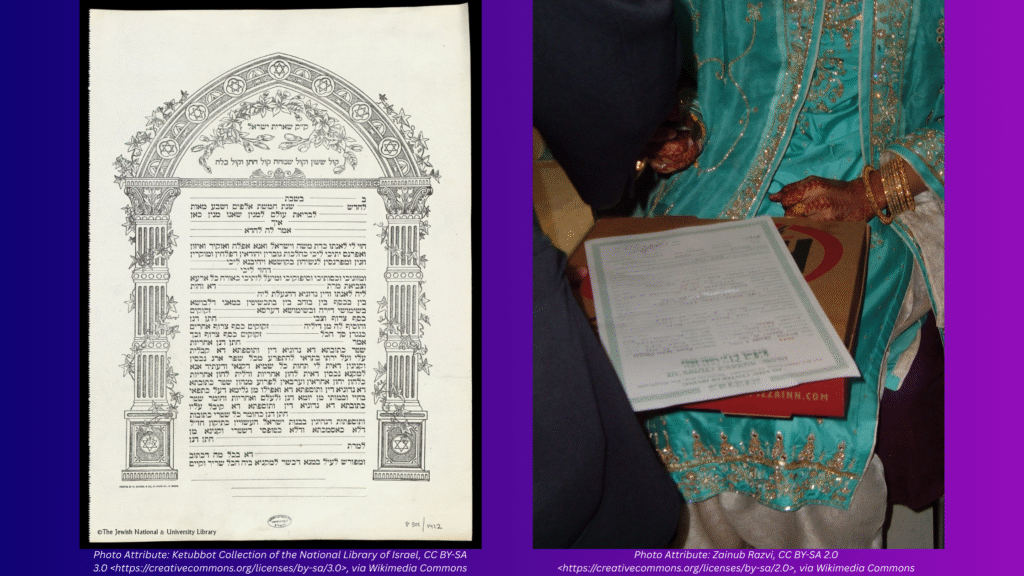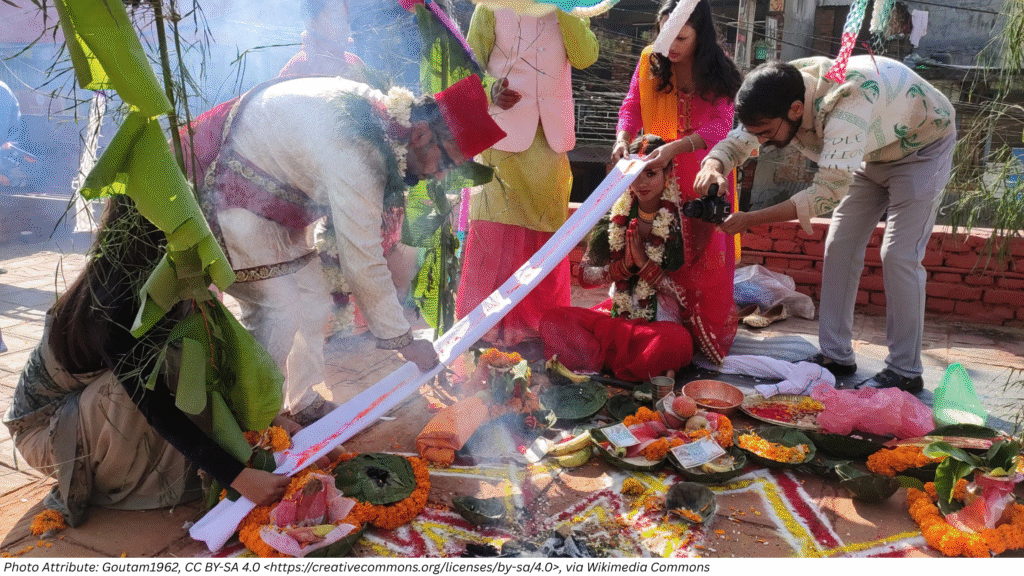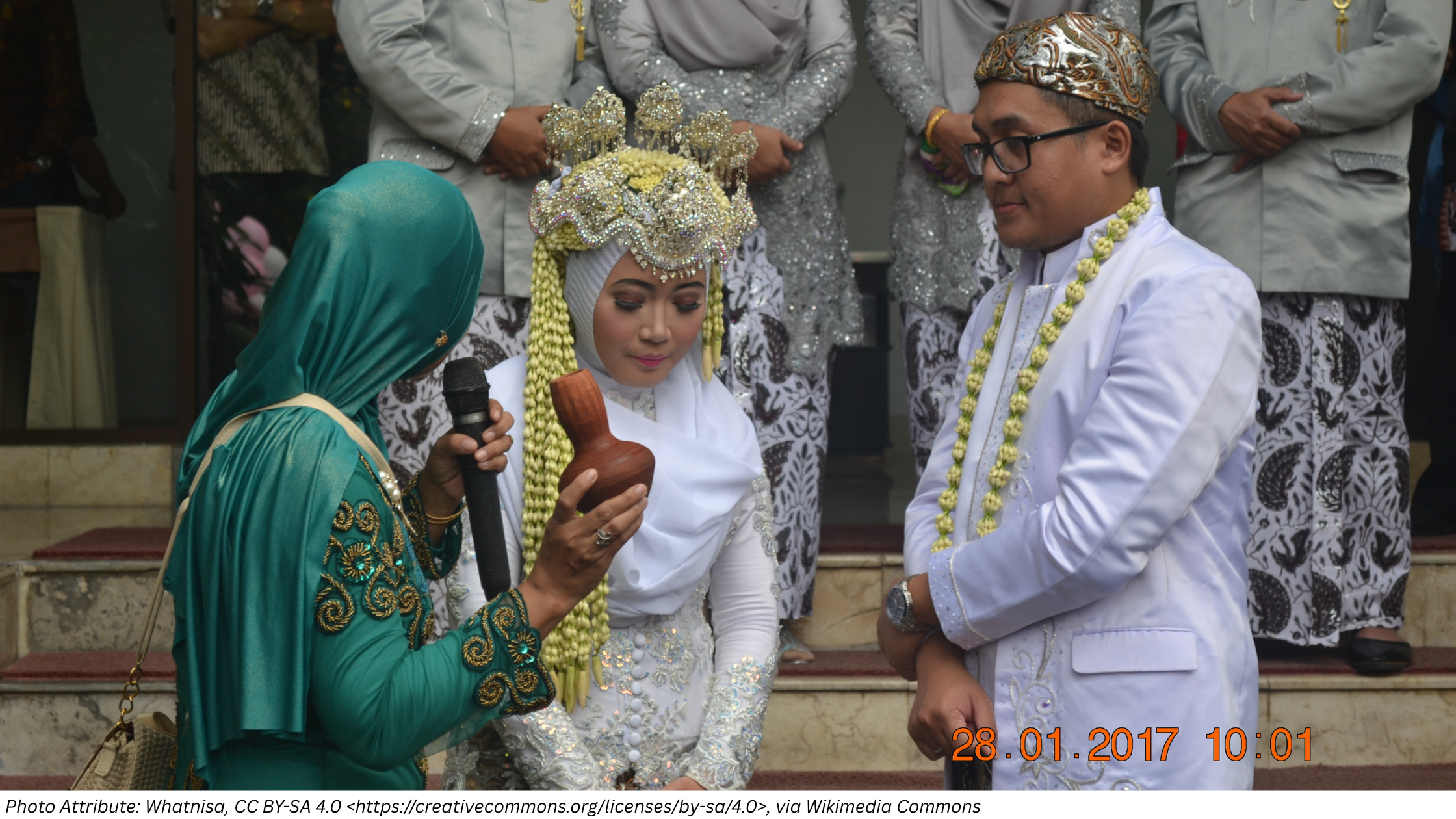Marriage is one of the most important milestones in life, but it can look very different depending on cultural and religious traditions. Muslim couples may sign a Nikah, Jewish couples a Ketubah, Catholics marry in the church, and Hindu couples follow traditional rituals. These contracts and ceremonies carry deep spiritual significance, but questions often arise about how religious marriage contracts and US law interact in practice. Are they legally enforceable in U.S. courts?
The short answer: it depends on what is in the contract, and whether the marriage is also registered with the state.
Civil Marriage vs. Religious Ceremonies
In the United States, a religious marriage ceremony by itself is not a legally valid civil marriage. To be recognized under state law, couples must obtain a civil marriage license. Without it, rights such as spousal benefits, property division, and inheritance do not automatically apply. Courts treat religious ceremonies as meaningful in the faith community, but not as substitutes for legal marriage.
Enforceable Provisions in Religious Contracts

Still, certain provisions of religious contracts, especially financial ones, may be enforceable if they look like regular contracts.
- Nikah (Islamic marriage): Courts sometimes uphold the mahr (mandatory gift promised to the bride), such as in S.B. v. W.A. (New York, 2021), where the agreement was clear and voluntarily signed. In Chaudry v. Chaudry (New Jersey), a court recognized a mahr agreement, though it raised fairness concerns.
- Ketubah (Jewish marriage): Courts often enforce the payment provisions but avoid intervening in religious matters, such as compelling a husband to grant a “get” (religious divorce).
- Hindu marriages: While the religious rituals themselves are not enforceable, some families attempt to create dowry-style agreements. These are typically rejected by American courts as being against public policy, but separate contracts regarding financial obligations can sometimes stand if drafted correctly.
- Christian marriages: Marriages performed in churches are only legally valid in the U.S. if the couple also obtained a civil license. Courts won’t enforce religious vows such as obedience, but they will enforce the standard civil rights of marriage once it is registered.
The common theme is this: religious obligations cannot override U.S. law. Courts may respect financial promises framed as contracts, but they will not enforce spiritual duties or religious customs. That means a Nikah, ketubah, or other religious contract is meaningful to a couple’s faith and community, but not automatically binding in the American legal system.
How Couples Can Protect Their Rights in Religious Marriages

For couples across different faiths, the safest way to ensure both spiritual and legal protections is to combine religious ceremonies with civil registration. A religious marriage alone may carry deep cultural meaning, but without a state-issued marriage license, U.S. courts usually will not recognize it as legally binding. That can affect critical rights such as property division, spousal benefits, and inheritance.
When religious contracts include financial promises, like a mahr in a Nikah or financial obligations in a Ketubah, couples should take steps to draft them in clear contractual terms. Courts are more likely to enforce agreements that resemble standard contracts and are voluntarily signed by both parties. Consulting legal counsel before finalizing a religious contract can help ensure it complies with state law while honoring cultural and religious values. This dual approach offers the strongest protection for both faith commitments and legal rights.
Risks for Immigrants in Religious-Only Marriages
For immigrants, these legal distinctions create added risks. Some spouses deliberately refuse to register their marriages civilly, keeping their partner vulnerable. Others misuse religious contracts to control their spouse, denying financial rights or access to legal protections.
The good news is that survivors are not without options. Under the Violence Against Women Act (VAWA), victims of abuse can seek immigration protection and independence even if their marriage was religious-only, so long as they can show good faith and abuse.
Conclusion: Protecting Faith and Rights Together

At Qazi Law, we help clients bridge these worlds, honoring cultural and religious commitments while ensuring families are fully protected under American law. Whether through civil marriage registration, enforceable contract drafting, or immigration relief under VAWA, we ensure that no one is left powerless simply because their marriage began in a religious ceremony. Call 630-504-0648 or schedule a confidential consultation with Attorney Farrah.
Sign Up for Our Newsletter: Receive weekly immigration news and free toolkits.
Follow us on social media to stay informed:
Facebook: Qazi Law Offices
Instagram: Abogada Farrah Qazi
LinkedIn: Qazi Law Offices
Your marriage can honor your faith while protecting your future, and we are here to help you make that possible.

